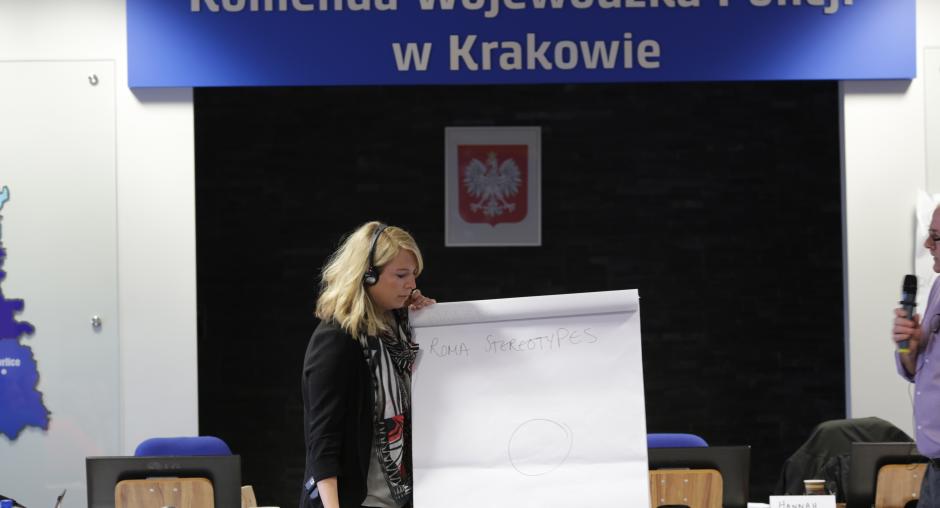OSCE/ODIHR trains Polish police officers on effective and human rights-compliant policing in Roma and Sinti communities

Effective and human rights-compliant policing in Roma and Sinti communities was the focus of a two-day training course for 20 senior Polish police officers organized by the OSCE Office for Democratic Institutions and Human Rights (ODIHR) in Krakow, Poland, in co-operation with the Regional Police Headquarters, on 5 and 6 December 2017.
The course helped participants (16 men and 4 women) strengthen their understanding of effective policing practices and of the need to respect and protect the rights of all persons, particularly those who are excluded or discriminated against, such as members of Roma communities. It also aimed to increase participants’ knowledge of and sensitivity to gender-specific issues that Roma women face and to promote greater trust and confidence in the police within the communities.
“In 2003, OSCE participating States approved an Action Plan that recognizes the importance of building trust between Roma and Sinti communities and the police. This is why ODIHR is now providing specific training for police, so they can work with Roma and Sinti communities in tackling hate crimes, violence and discrimination against them,” said ODIHR Director Ingibjörg Sólrún Gísladóttir.
This was the second course of this kind organized by ODIHR and the regional police in Krakow.
The first took place in April 2017 and involved patrol officers who have direct experience working in Roma communities.
"This training is essential if police are to work with and protect the public in an ethical, human rights-compliant and effective way,” said Paweł Karnas, Human Rights Advisor to the Regional Chief Commander of the Police in Krakow.
The course is part of ODIHR’s training programme for law enforcement officers on effective and human rights-compliant policing in Roma and Sinti communities, aiming to strengthen the capacities of police officers operating at the local level in working effectively with Roma and Sinti and mixed communities, while complying with international human rights standards.
